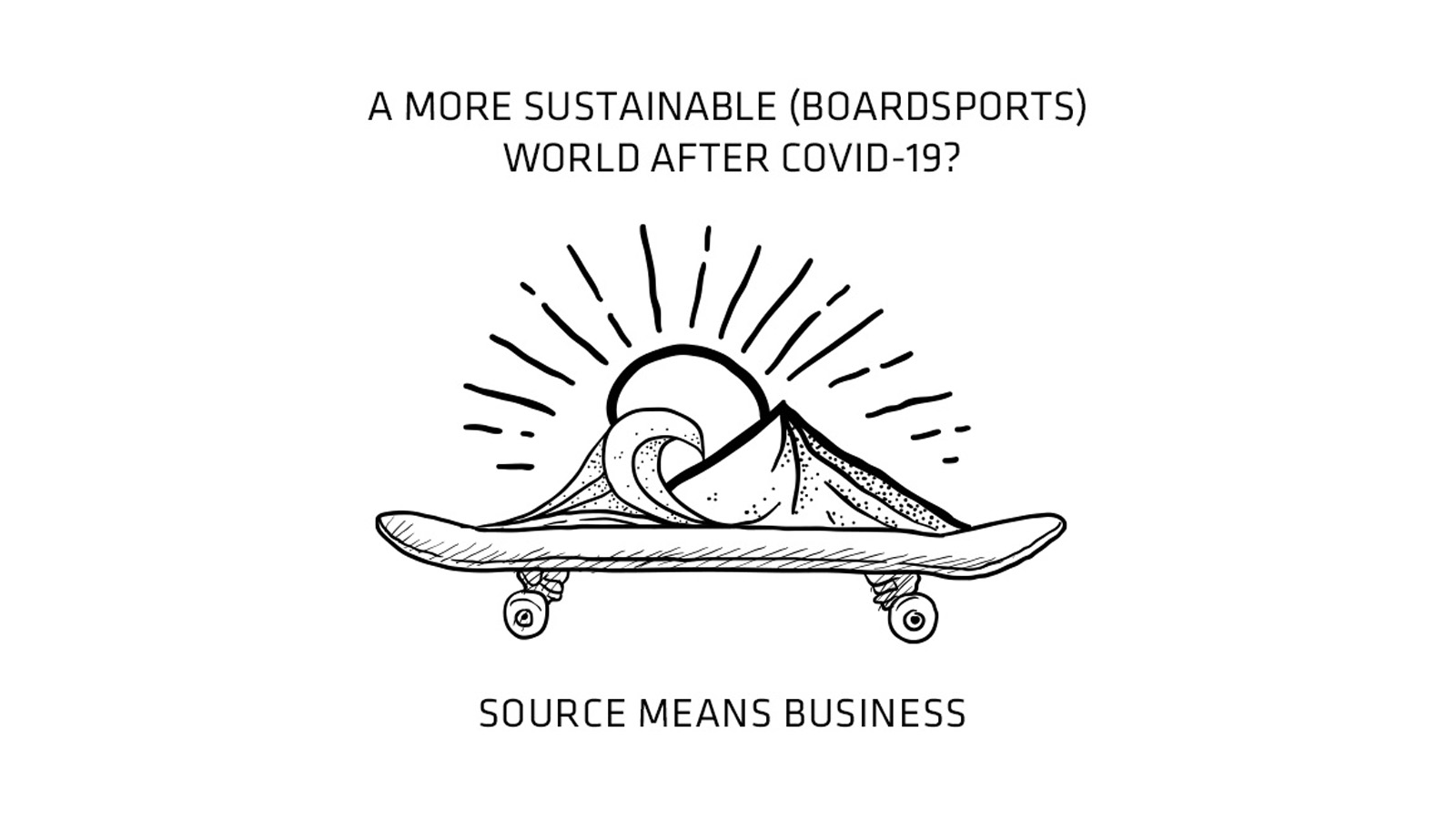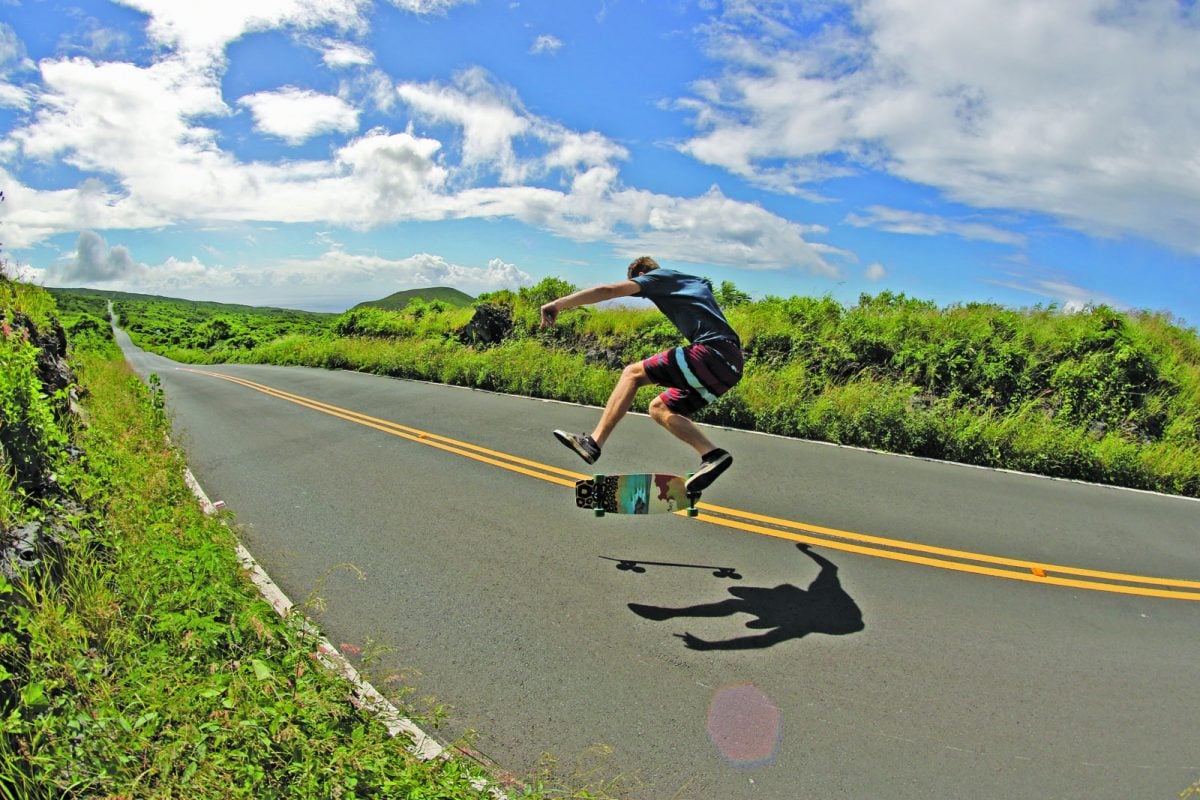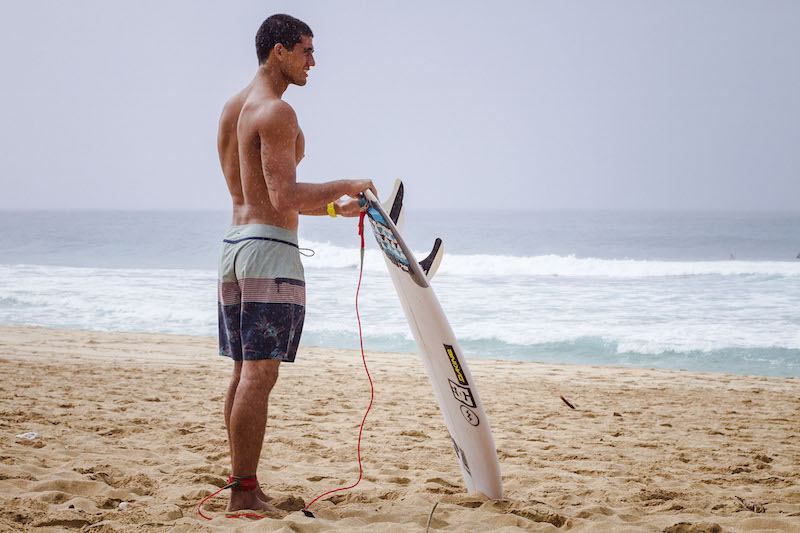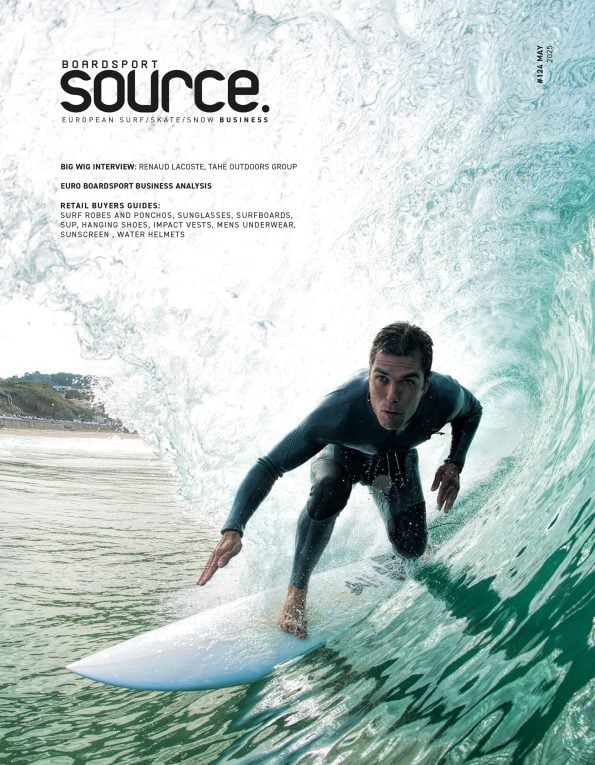
A More Sustainable (Boardsports) World After Covid-19?
Dirk Vogel, Skateboard Editor at SOURCE, has weighed up different perspectives on how attitudes and actions towards sustainability and climate change might have been altered by COVID-19. Will lessons have been learnt or will people and brands return to business as usual?

A More Sustainable (Boardsports) World After COVID-19?
Our COVID-19 coverage continues with perspectives on sustainability in a world after Coronavirus. By Dirk Vogel, Boardsport SOURCE Skateboard Editor.
If there’s a sound by which to remember the Coronavirus lockdown, it has to be the birds singing at all times of day. Mornings, daytime, the middle of the night; they chirp like there’s no tomorrow. It’s the sound of nature taking back the airwaves now that humans are social distancing at home. The song of these birds is even more audible over the silence out in the streets, as automobile traffic has flatlined in most parts of the world, and there’s hardly an aeroplane in the sky.
The direct environmental effects of COVID-19 lockdown – and the reduction in transportation and industrial production – are already visible after a few weeks. The year 2020 promises to go down as the first year in history to see CO2-emissions declining. A record-sized hole in the ozone layer over the Arctic has reportedly closed. Air pollution in China has dropped so drastically – CO2-emissions declined by a quarter in mid-February – that chronically smog-infested cities are again visible from satellites.
On that note, is Coronavirus a final chance for our planet to heal from the impact of human intervention? The Big Reset the environment desperately needs? Will the pandemic give rise to a new culture of sustainability?
It’s possible. More sustainability and ethical processes in the outdoor industry were among the action items outlined in a statement by EOG President Mark Held, and a major theme in the recent statement from the folks behind Picture Organic Clothing. For this article, we asked around further in the boardsport business and found an interesting blend of optimism and realism.

THE NEW CONSUMER MINDSET
Let’s start with consumers, because their buying decisions ultimately make all the difference when it comes to the impact of sustainability initiatives. The good news: According to a McKinsey survey, 15% of consumers in the US and Europe expect to buy more ecologically and socially sustainable clothing.
“The consumer’s values influence their buying decisions. They engage with and buy products from brands that put the planet and product before profit. Only retailers that stock these brands will be able to reach them and be part of this progress,” said company founder Rory Atton at outdoor brand dewerstone, member of 1% for the Planet and supporter of Save Our Rivers, Eden Reforestation and the Gili Eco Trust.
This cultural shift is accelerated by the fact that the virus has put the world on pause, allowing consumers to experience the massive environmental impact directly. “We’ve seen that our actions can have a dramatic and positive effect on the world when we act collectively. In a strange way, this might be the first hopeful signs for the environment a lot of people have ever seen,” said Nate Kuder, Bike Product Line Manager at Dakine.
In response, brands across our industry are already doubling down on their sustainability efforts. According to the recent pulse survey conducted by the World Federation of the Sporting Goods Industry (WFSGI), 70% of sports companies consider environmental friendly products to be the most important market trend after the pandemic. On a similar note, 46% attach importance to recycle economies.
NEW BRAND ETHICS
Ultimately, companies will need to step up. Because consumer trends are very well, but it’s action from brands that makes a difference. “Companies have a huge responsibility to make things change without waiting from any consumer demand. Climate does not wait,” said Florian Palluel, Transparency & Sustainability manager at Picture Organic Clothing.
At outdoor brand dewerstone, founder Rory Atton said: “Both consumers and retailers demand brands use their influence to lead on global issues like climate change. This isn’t a stylistic or marketing choice – it has to run to the core of how you operate as a business. Smaller brands will be the catalyst for change in the industry. Those who can demonstrate their story of putting planet before profit is authentic will accelerate this shift. dewerstone is not perfect, no brand is. By questioning the environmental impact of every business decision we make we are always improving.”
Another brand that has made major strides recently is Dragon Eyewear. “In September 2019, Dragon retooled its sunwear line to be made from injection plant-based resin, a more sustainable material to lighten our burden on the world and give back in what way we could. For March 2020, Dragon released the Upcycled collection, a small capsule collection of sunwear and optical frames that are created solely from water bottles, or recycled PET plastics,” said Shay Williams, Product Development Specialist at Dragon Eyewear.
When we talked to J.P. Bonnemason, global eyewear product manager at Quiksilver and Roxy, he had some news to share. “For Roxy Pop Surf, we are now using a special grilamid called BTR 600 LS which is ecologically produced, based on castor plants and energy from bio-mass. To avoid plastic lenses on this kind of eco frame we selected mineral glass from Barberini which is at the moment the only 100% recyclable lens and also the most durable lens fabric.”
At OTIS Eyewear, Brand & Marketing Manager Stephen Gerard also sees an ongoing trend towards more responsibility: “We’re seeing a lot of brands put focus on their eco stories – from sourcing sustainable materials to giving back to local nonprofits. We’re seeing the coastal communities that support our retail base looking for brands to contribute to this discussion in a meaningful way.”
BACK TO NORMAL, OR WORSE?
Realistically, the discussion is not always so meaningful, or rational, in a climate when consumers tend to isolate in their own reality tunnels while finding confirmation for the most outrageous theories on social media. At the time of this writing, the streets are filling with protesters demanding an end to shutdown measures and a reopening of their economies. In response, some governments are already lifting social curbs and bringing key segments such as retail back online.

Dakine
Too much, too soon?
Nate Kuder at Dakine remains optimistic: “In the near term, there’s going to be a lot of pressure to return to normal, but the pace of life and the economy isn’t going to just turn on again. Consumers will be cautious, making fewer purchases that are driven by real need and long-term durability, which is inherently more sustainable. In the mid-to-long term, the trend towards more sustainable products from more responsible companies will only grow.”
But not everyone expects a pivotal shift towards sustainability in society after the pandemic is over. “I do not think so. Those who cared before, will continue to care, those who did not care, won’t,” said Jörg Ludewig, co-owner at Urban Supplies distribution in Germany, adding: “It could actually be getting worse, as in order to revitalise the economy, some environmental restrictions may be lowered, with little protest only.”
Some early numbers support this view. According to research by the Climate Change Institute in the UK, air pollution in China was already back to 80% of pre-coronavirus levels in late April. And with the battle cry for placing the economy over workers’ health(!), we might even see some governments suspend environmental guidelines and restrictions for the foreseeable future in order to ‘catch up’ on lost industrial output.
CONCLUSION
It’s hard to say whether COVID-19 will cause a global awakening, or if consumers will go back to their entitled, overblown, unsustainable ways. But then again, boardsports enthusiasts have always been outliers. Patagonia founder Yvon Chouinard already told customers five years ago: ‘Don’t Buy This Jacket!’ Many brands in our industry are putting the environment before profits and have done so for years. These are the ones prepared to keep driving change forward.
“From our point of view, the most important now is to drastically follow what the IPCC experts are saying to solve the climate problem: a massive de-carbonation of our societies, more sobriety in everything we do and an increase of the capacity to naturally capture and sequester the CO2 currently present in the atmosphere,” said Florian Palluel at Picture, adding: “Those recommendations are the only path to follow to effectively fight climate change. They can be easily translated into concrete actions for any governments, companies or individuals.”
A few hopeful indicators of concrete actions we are already seeing on a global level are:
- People planting gardens at home
- Boardshops providing home delivery in their vicinity
- Long-term reduction in aeroplane travel
- More local supply chains, with 30% of sports companies looking for a regional centric sourcing or global market centric sourcing and 15% want to opt for local sourcing
- Consumer demand for value-added, long-lasting products. Around 25% of companies see functional-driven and price points-centric product development as important.
- More time spent outside, as 70% of respondents see running and outdoors (including boardsports) as the most appealing sports after the pandemic.
In conclusion, there seems to be a place for boardsports brands and retailers to do the right thing as we emerge from this crisis. Boardshops who practice sustainability and carry environmentally inclined brands can lead by example. And who knows, if consumers see that you can actually have cool products and exciting outdoor activities while saving the environment, this whole sustainability idea might just go ‘viral’… in a good way.
Watch this space as our boardsports retail coverage amid COVID-19 returns to boardsportsource.com






